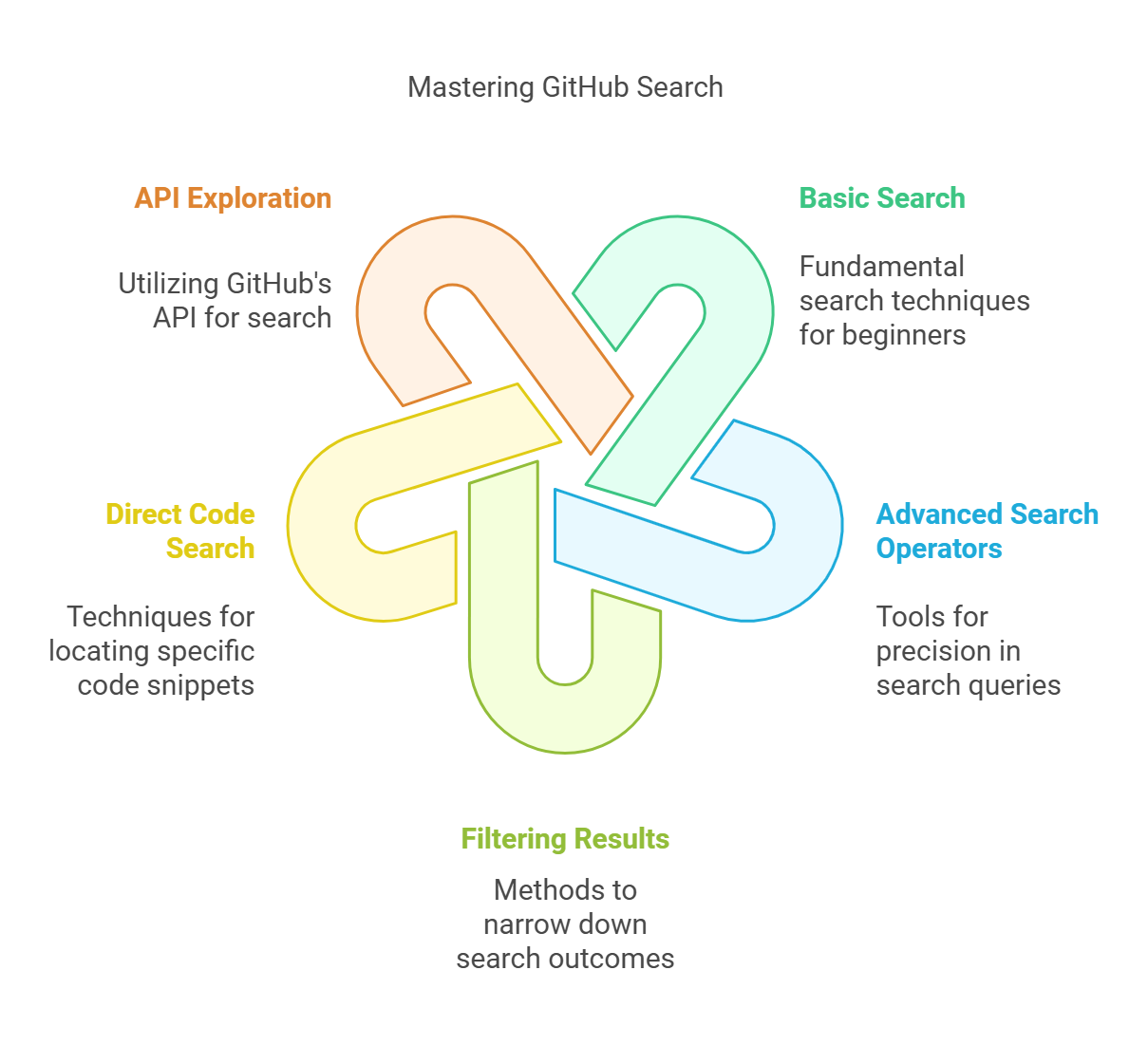Master GitHub Search with this comprehensive guide! Learn tips, advanced operators, and techniques to find repositories, code, and issues effectively. FAQs included.
GitHub Search A Comprehensive Guide to Mastering Code Discovery
GitHub has become the backbone of software development, offering developers a collaborative platform to store, manage, and share code. One of its most powerful features is the GitHub Search functionality, which helps users quickly find repositories, code snippets, issues, or users. In this article, we’ll explore how to effectively use GitHub Search, highlight essential tips and tricks, and discuss the significance of mastering this tool for developers.
Why GitHub Search Matters
With millions of repositories and projects hosted on GitHub, finding specific code or information can be overwhelming. GitHub Search allows you to:
- Discover Relevant Code: Quickly find solutions or examples that match your project’s needs.
- Locate Repositories: Search for open-source projects to contribute to or use as references.
- Track Issues: Monitor bugs, feature requests, and discussions within a repository.
- Connect with Developers: Identify and follow contributors with expertise in specific technologies.
By mastering GitHub Search, developers can save time, improve productivity, and contribute more effectively to the open-source ecosystem.
How to Use GitHub Search Effectively
GitHub Search offers a range of capabilities to refine and streamline your searches. Here are some tips:
1. Use Basic Search
The search bar at the top of GitHub’s interface is a starting point. Simply type your keyword, and GitHub will display results across repositories, code, users, and more.
2. Leverage Advanced Search Operators
GitHub supports advanced operators to narrow down your search. Some of the most useful ones include:
- repo: Search within a specific repository. For example:
repo:octocat/Hello-World. - language: Filter results by programming language. For example:
language:python. - user: Search by a specific user. For example:
user:aurangzebqureshi. - extension: Find files with a specific extension. For example:
extension:md. - filename: Locate files by name. For example:
filename:README.
3. Filter Search Results
After performing a search, use the filters available on the results page to refine your query by type (code, issues, pull requests, repositories, etc.) and other criteria.
4. Search Code Directly
When searching for code snippets, GitHub’s search engine allows you to locate specific lines of code. For instance, searching "import numpy" language:python will return Python files containing the exact line “import numpy.”
5. Explore GitHub’s API
For developers looking to automate or integrate search capabilities into their workflows, the GitHub Search API provides robust options. It supports queries for repositories, code, commits, issues, and users.
Advanced Tips for Pro Searchers
1. Boolean Operators
Combine search terms with Boolean operators for more precision:
- AND (default):
React AND Redux - OR:
JavaScript OR TypeScript - NOT:
React NOT Angular
2. Wildcards
Use asterisks (*) as wildcards for incomplete terms. For example, build* will match words like “builder” or “building.”
3. Sorting Results
Sort results by best match, most stars, or most recent updates using the dropdown menu on the results page.
4. Save Your Searches
If you perform the same search often, save it as a bookmark in your browser or use GitHub’s notifications feature to stay updated.
Common Use Cases for GitHub Search
1. Finding Open Source Libraries
Looking for a library to use in your project? Use keywords like "image processing" language:python stars:>100 to find popular Python libraries.
2. Locating Issues for Contribution
Developers contributing to open-source projects can search for issues tagged with labels like good first issue or `help wanted.”
3. Identifying Code Patterns
Search for specific coding patterns or solutions in public repositories. For example, "OAuth implementation" language:javascript helps locate JavaScript-based OAuth examples.
4. Monitoring Your Repository
Keep track of your repository’s activity by searching for forks, mentions, or specific pull requests.

GitHub Spring Boot Conducting Unit Testing Without Restarting Applications
Benefits of Mastering GitHub Search
- Efficiency: Quickly locate relevant code or repositories without sifting through unnecessary results.
- Collaboration: Find and engage with developers and projects that align with your interests.
- Learning: Explore coding techniques, frameworks, and tools by analyzing public repositories.
- Problem-Solving: Find solutions to coding challenges by reviewing how others have tackled similar problems.
Frequently Asked Questions (FAQs)
1. What is GitHub Search?
GitHub Search is a tool that helps users find repositories, code, issues, users, and more within the GitHub platform.
2. How do I search for code in a specific programming language?
Use the language: operator followed by the language name. For example: language:java.
3. Can I search within a private repository?
Yes, but only if you have the necessary permissions for the private repository.
4. What is the GitHub Search API?
The GitHub Search API allows developers to programmatically search for repositories, issues, users, and other resources.
5. How can I refine my search results?
Use advanced search operators, filters, and Boolean expressions to narrow down results.

